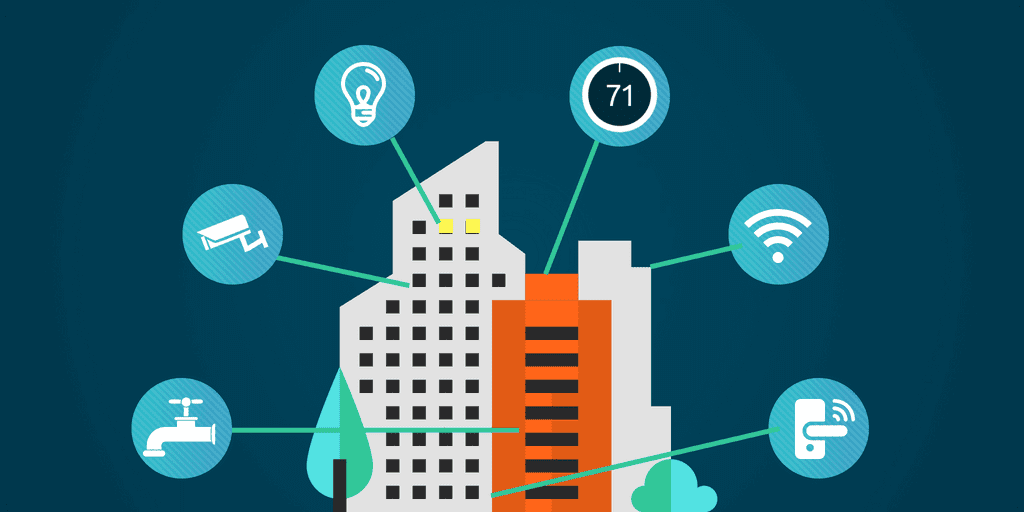
Future-Proofing with Smart Building Technologies
The rapid evolution of technology has extended its influence to the realm of construction and real estate. Smart building technologies are at the forefront of transforming traditional structures into intelligent, efficient, and sustainable spaces. This article explores the various facets of smart building technologies and their role in future-proofing the way we design, construct, and manage buildings.
The Foundation: Understanding Smart Building Technologies
At its core, smart building technology involves integrating advanced systems and connectivity to enhance the overall performance of a building. From energy management and security to occupant comfort and operational efficiency, these technologies leverage data and automation to create intelligent infrastructures.
Energy Efficiency: A Pillar of Sustainable Building
One of the primary benefits of smart building technologies is their contribution to energy efficiency. Automated systems optimize lighting, heating, ventilation, and air conditioning (HVAC) based on real-time data, reducing energy consumption. This not only lowers operational costs but also aligns with sustainable practices, making buildings more environmentally friendly.
IoT Integration: Creating Connected Environments
The Internet of Things (IoT) plays a central role in smart building technologies. Sensors, actuators, and devices are interconnected to gather and exchange data. This connectivity allows for real-time monitoring and control, enabling building systems to respond dynamically to changing conditions and user preferences.
Enhanced Security: Integrating Intelligent Surveillance Systems
Smart building technologies extend beyond traditional security measures. Intelligent surveillance systems utilize video analytics, facial recognition, and access control to enhance security protocols. This not only ensures the safety of occupants but also provides valuable data for incident analysis and preventive measures.
Occupant Comfort and Well-Being: Personalizing Environments
Smart buildings prioritize occupant comfort and well-being. Automation systems adjust lighting, temperature, and air quality based on individual preferences and usage patterns. Personalized environments contribute to improved comfort, productivity, and overall satisfaction for occupants.
Predictive Maintenance: Proactive Facility Management
Predictive maintenance is a game-changer in facility management. Smart building technologies use data analytics and machine learning to predict equipment failures before they occur. This proactive approach minimizes downtime, reduces repair costs, and extends the lifespan of building systems.
Smart Grid Integration: Optimizing Energy Distribution
Integrating smart building technologies with smart grids enhances overall energy management. Buildings can dynamically adjust their energy consumption based on grid conditions, contributing to grid stability and resilience. This bidirectional communication between buildings and grids optimizes energy distribution and usage.
Sustainability and Green Building Certifications
Smart building technologies are integral to achieving sustainability goals and obtaining green building certifications. These technologies align with environmentally conscious practices by minimizing resource consumption and reducing carbon footprints. Buildings equipped with smart technologies are better positioned to meet stringent sustainability standards.
Challenges and Considerations: Navigating the Implementation Landscape
While the benefits of smart building technologies are substantial, their implementation comes with challenges. Considerations include the initial investment, interoperability of different systems, and cybersecurity concerns. Navigating these challenges requires careful planning and collaboration among stakeholders.
The Future Landscape: Smart Cities and Beyond
The impact of smart building technologies extends to the larger context of smart cities. As urbanization continues, the integration of intelligent buildings into the fabric of smart cities becomes crucial. These interconnected structures contribute to overall urban efficiency, resource optimization, and improved quality of life for residents.
In conclusion, embracing smart building technologies is not just a trend but a strategic move towards future-proofing our built environment. The synergy of energy efficiency, IoT integration, enhanced security, and sustainability positions smart buildings at the forefront of modern construction. To explore more about the transformative power of smart building technologies, visit Business Finance for in-depth analyses and insights.









